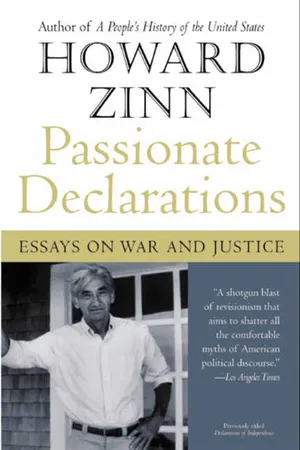CHAPTER ONE Introduction: American Ideology
1. When Gorbachev came to power in the Soviet Union, he clearly grasped this idea, one that the giant American corporations had learned long ago; one did not have to monopolize the field to maintain control and allowing for a bit of competition was the most ingenious way to dominate. And so he initiated some socialist “pluralism.”
2. Edward Herman and Noam Chomsky, in their book Manufacturing Consent (South End Press, 1989) argue powerfully that the function of the media in the United States (and, of course, not only in the United States) “is to inculcate and defend the economic, social, and political agenda of privileged groups that dominate the domestic society and the state.” They document this with examples of how the press treated certain historical events: the Tet offensive during the Vietnam War, the Watergate scandals of the Nixon era, and the Iran-Contra affair of the Reagan years.
3. Ched Noble, in a remarkable essay, “Ethics and Experts,” Working Papers (July–Aug. 1980), rebels against the field in which she received her Ph.D. (philosophy), as she finds in it a “new philosophical sub-discipline, applied ethics.” She challenges the assumption she finds in this new area, that “in order to think properly about moral issues…one needs a background in classical moral theories and modern theory of value.” While she does not believe common sense alone can solve the profound moral problems, she insists that “contemporary theoretical ethics cannot supply the deficiencies of common sense.” She resents the arrogance of philosophers “who believe that philosophy is the proper academic discipline to assume responsibility for solving today’s moral problems.”
A similar view is expressed by a veteran philosopher, Bernard Williams, in his book Ethics and the Limits of Philosophy (Harvard University Press, 1986), who argues that philosophy cannot do much to guide ethical actions.
4. John Le Carré, The Russia House (Knopf, 1989), 207.
5. The German scientist Werner Heisenberg became famous for, among other things, his “principle of uncertainty,” which makes this point. Heisenberg, in his book From Plato to Planck, said that “in science we are not dealing with nature itself but with the science of nature—that is, with nature which has been thought through and described by man.” Quoted in Paul Mattick, “Marxism and the New Physics,” Philosophy of Science (Oct. 1962): 360.
CHAPTER TWO Machiavellian Realism and U.S. Foreign Policy: Means and Ends
1. Ralph Roeder, The Man of the Renaissance (Viking, 1933), 120–130, gives us a dramatic description of Savonarola’s arrest and execution.
2. Niccolò Machiavelli, The Prince and The Discourses, Introduction by Max Lerner, (Modern Library College Edition, 1950), Chapt. 6, p. 22. All citations are from this edition unless otherwise specified.
3. Ibid., Chapt. 15, p. 56.
4. In the period after World War II, the term realism became known among theorists of international relations as meaning a recognition that “national interest” and “power” predominated in the foreign policy of nations. Political scientist Hans Morgenthau made this the center of his theory, explained in his book Politics among Nations (Knopf, 1948), which became the most influential textbook of the postwar period. The “realist paradigm” is discussed at length and criticized in John Vasquez, The Power of Power Politics (Rutgers, 1983).
5. Editorial, Wall Street Journal, Apr. 6, 1989. That same week, the Supreme Judicial Court in Massachusetts rejected such “realism” when it overturned the arrest of a protester against nuclear weapons for “trespassing,” saying that the traditional police practice of using “disorderly conduct” or “loitering” charges as a catch-all for arresting undesirable persons violated rights of free speech and assembly.
6. Scholars, as is their habit, have always argued about Machiavelli and what he “really meant,” although the language of The Prince is quite simple and direct. Political philosopher Leo Strauss, in his Thoughts on Machiavelli (Free Press, 1958), believes that we cannot read Machiavelli directly, that we must look for hidden meanings. This approach is strongly criticized by Robert McShea in “Leo Strauss on Machiavelli,” Western Political Quarterly, (Dec. 1963), who says, “The theory of concealed teaching and the rules for reading as used by Strauss in the explication of Machiavelli’s text seem less a means for finding what that thinker purports to say than for reading preconceived notions into his writing.”
7. The British political philosopher Isaiah Berlin has written about Machiavelli in the New York Review of Books, March 17, 1988, that he believed “one needed a ruling class of brave, resourceful, intelligent, gifted men who knew how to seize opportunities and use them, and citizens who were adequately protected, patriotic, proud of their state, epitomes of manly, pagan virtues. That is how Rome rose to power and conquered the world…. Decadent states were conquered by vigorous invaders who retained those virtues.” Berlin takes a kindly view of Machiavelli, saying that Machiavelli recognizes the Christian virtues, which are different, but “leaves you to choose.” This seems naive to me. A writer who argues so powerfully for those “pagan virtues” hardly leaves it to us to choose. Of course, we can still choose, but he has loaded the argument s...
